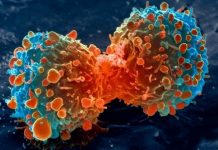 Hi Friends! It is true that Cancer Nutrition does help fight cancer.
Hi Friends! It is true that Cancer Nutrition does help fight cancer.
Nutrition can be an important part of maintaining and regaining your health.
While it is probable that excellent nutrition strengthens other defense mechanisms and the immune system in a way as to lower the probability of controlling cancer.
It should be noted that eating more is not the criteria but eating good is the point.
Many foods accelerate cancer and some control its growth. So planning cancer nutrition accordingly is most important.
At least 35% of all cancers have a nutritional connection as estimated by The National Cancer Institute. When a lifestyle factor such as smoking is included the associated risk becomes much stronger and may be as high as 85%.
Seeking the help of a professional nutritionist can help you to improve your eating habits while you battle cancer, providing you with the nutrition that is necessary to aid your recovery. You will also be made aware of the foods that feed cancer, so you know what to avoid.
Overcoming cancer will take all of your energy, but at least if you follow a healthy diet, you will have more energy to give throughout this process. Having a nutritionist educate you on the subject of nutrition and following the advice given can definitely improve your chances of making a full recovery.
It should be noted that what we eat makes a big difference in our mood, our energy levels and even our self esteem. Doing something positive for our health and well-being means choosing foods rich in protective factors such as fruits and vegetables.
You must know this! Prefer foods that come from the plant kingdom rather than the animal kingdom as they have many protective botanical factors. You can find phytonutrients in plants to fight back the danger.
Humans can benefit from these phytonutrients. Antioxidants, anticarcinogens and bioflavonoids are some of the terms used to describe the actions of phytonutrients.
Phytonutrients foods include berries, dark green leafy vegetables, citrus fruits, legumes including soy and whole grains.
Soy Is Good!! Studies are performed looking at the benefits of soy protein in those at risk of breast and prostate cancer. Soy protein contains several active phytonutrients that may protect against hormone sensitive.
Eat lots of Vegetables!! Broccoli is group of vegetables from cruciferous family which is found to be very good for cancer patients.
Fiber is a Must! Dietary fiber is the indigestible part of foods of plant origin. Fiber provides bulk to our diet and helps to maintain a healthy colon. The suggested dietary intake of fiber is 25-35 grams over the day.
This is best accomplished by eating fiber rich foods at each meal such as whole grain cereals, breads, pastas, beans, leafy vegetables, fruits, nuts and seeds.
Now let’s see how you can cope up with the cancer prevention or recurrence through properly planned cancer nutrition.
Listing of do’s and don’ts is given below:
- Frying or charbroiling meat or fish may cause carcinogens on the surface by the action of the heat.
- Smoking or nitrite curing meats may also form carcinogens.
- These carcinogens may not be harmful when consumed in small quantities and particularly when we eat them with fruits and vegetables that contain protective botanical factors.
- Fish is a good source but berries, mushrooms and Brussels sprouts are also dietary sources of omega-3 fatty acids.
- Enjoy a variety of foods, emphasize your diet with grains, fruits and vegetables
- Choose Lower-Fat products
- Limit Salt, Alcohol and Caffeine
- It is wise to use lower heat methods for most of our cooking methods such as steaming, braising, poaching, stewing or microwaving.
- Marinades help to make cooked meats safer.
- Oily fish such as salmon, herring, mackerel, halibut and tuna contain oils rich in omega-3 fatty acids.
- It is recommended that you try to eat foods rich in omega-3 fatty acids several times each week.
So now you are very clear with what your cancer nutrition must include and what not.
If you have any questions about cancer nutrition or are interested in this field as a career choice, it is a good idea to get more information. A professional nutritionist should have at least a Master of Science in Nutrition Education, so he or she can provide the proper guidance. Nutritionists can specialize in different areas such as global nutrition, sport nutrition, strategies in weight control or even Vitamins and Mineral. Aside from these specialized areas, someone working to earn this degree will take courses that include Lifecycle Nutrition, Nutrition Epidemiology & Research Methods, Changing Health Behavior, and Multicultural Health.
Even without suffering from cancer or choosing Nutrition Education as a career, it might help you daily to get good advice from someone who has graduated with this degree in order to improve your diet. In the end, the diet that you follow today will have a major influence on your health down the line.
Eat Good And Stay Healthy!















